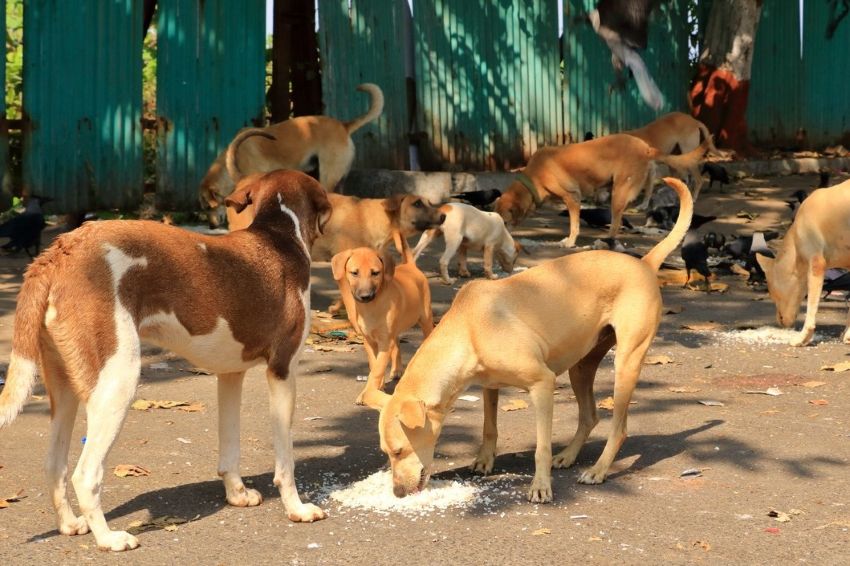Bengaluru, July 14, 2025: In a move that has stirred a mix of applause, amusement, and apprehension, the Bruhat Bengaluru Mahanagara Palike (BBMP) has announced a ₹2.9 crore daily feeding programme for the city’s stray dog population. The initiative, which will provide chicken and rice meals to stray dogs across all 243 municipal wards, aims to ensure animal welfare and prevent aggressive behavior often triggered by starvation.
While the programme reflects a humane and structured approach to managing the growing number of strays in Bengaluru, it has also ignited a public and policy debate on priorities, sustainability, and administrative accountability.
As per BBMP officials, the initiative will involve local NGOs and volunteers who will be tasked with preparing and distributing meals for an estimated 3.1 lakh stray dogs. The civic body will allocate ₹95 per dog per day for a meal that includes cooked rice and chicken waste, with an estimated daily reach of over 50,000 dogs in the initial phase.
BBMP claims the plan is a response to multiple complaints of dog bites, aggression, and rising conflicts between humans and stray animals—issues often linked to hunger and poor health among street dogs.
This is reportedly the first daily feeding programme of its kind to be launched by a major Indian urban local body.
Mixed Reactions: Welfare vs Waste?
The announcement has divided opinion sharply.
Animal welfare groups and sections of the veterinary community have praised the effort for its compassionate approach. They point out that feeding strays, when done consistently and hygienically, can reduce territorial aggression, improve health outcomes, and support sterilisation and vaccination drives.
However, critics have raised several concerns:
- Economic Priority: Citizens and civic activists have questioned the timing and scale of the ₹2.9 crore expenditure when the city faces chronic challenges like potholes, garbage mismanagement, and water scarcity.
- Implementation Flaws: Experts have pointed out the absence of clarity on monitoring mechanisms, food quality standards, and logistical tracking. “Without robust checks, such a scheme risks becoming a leakage point for public funds,” said one civic consultant to The Hindu.
Behavioral Risks: Some veterinarians, including social media voices like “The Skin Doctor,” have flagged the potential of creating dependency among strays and increasing their population density in areas where food is freely available.
The BBMP plan highlights a growing tension in urban governance—balancing compassion with pragmatism. India’s urban stray population, estimated at over 6 crore animals, remains largely unmanaged. Sporadic sterilisation campaigns, underfunded shelters, and unregulated feeding practices have only exacerbated the issue.
Feeding programmes, when integrated with sterilisation and vaccination under Animal Birth Control (ABC) protocols, can be effective. But without this triangulation, they risk becoming unsustainable or even counterproductive.
From a policy standpoint, urban local bodies must adopt data-backed approaches—mapping stray populations, identifying hotspots, and aligning animal welfare with public health and sanitation goals.
Can This Be a Model for Other Cities?
The BBMP’s move may well spark similar initiatives across other urban centres struggling with stray management. However, cities must learn from both the merits and criticisms of Bengaluru’s plan.
What’s needed:
- Integrated planning: Feeding must be linked to ABC and anti-rabies vaccination efforts.
- Monitoring and audits: Use of GPS tagging, photographic proof of feeding, and third-party audits to prevent fund misuse.
- Public engagement: Sensitising citizens and involving RWAs and animal welfare NGOs to build trust and transparency.
- Nutritional planning: Vet-approved diet charts and food safety standards to ensure health benefits rather than harm.
Editorial Perspective: The Intention Is Noble—Execution Will Be the Decider
At TheCSRUniverse, we recognise BBMP’s initiative as a bold and empathetic gesture in the space of urban animal welfare. However, good intentions alone are not enough. In a country where civic funds are stretched thin and basic urban services remain patchy, accountability must be uncompromising.
If this programme succeeds—with transparency, vet involvement, and integration into broader stray management—it could serve as a template for compassionate governance. If not, it risks becoming yet another headline-friendly initiative that fades without real impact.




















.jpg)



